
-27-10-2024-
Thirtieth Sunday of Ordinary Time, Cycle B
Gospel text: Mark 10:46-52
vs.46 As Jesus left Jericho with his disciples and a large crowd, Bartimaeus (that is, the son of Timaeus), a blind beggar, was sitting at the side of the road.
vs.47 When he heard that it was Jesus of Nazareth, he began to shout and to say,
“Son of David, Jesus, have pity on me.”
v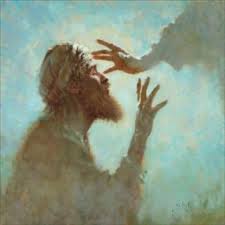 s.48 And many of them scolded him and told him to keep quiet, but he only shouted all the louder,
s.48 And many of them scolded him and told him to keep quiet, but he only shouted all the louder,
“Son of David, have pity on me.”
vs.49 Jesus stopped and said, “Call him here.“
So they called the blind man. “Courage,” they said “get up; he is calling you.“
vs.50 So, throwing off his cloak, he jumped up and went to Jesus.
vs.51 Then Jesus spoke.
“What do you want me to do for you?”
“Rabbuni,” the blind man said to him
“Master, let me see again.”
vs.52 Jesus said to him,“Go; your faith has saved you.“
And immediately his sight returned and he followed him along the road.
*******************************************
We have four commentators available from whom you may wish to choose
Michel DeVerteuil : Spiritan Priest, director of the Centre of Biblical renewal, Trinidad W.I. .
Thomas O’Loughlin: Prof of Hist Theology University of Nottingham NG7 2RD
Sean Goan: Studied scripture in Rome, Jerusalem and Chicago
Donal Neary SJ: Editor of The Sacred Heart Messenger and National Director of The Apostlship of Prayer.
****************************************
Michel DeVerteuil
Lectio Divina with the Sunday Gospels Year B
www.columba.ie
Textual Comments
Jesus’ attitude in this story is extraordinary. All his greatness, his divinity we might say, is expressed here. Follow every detail of St Mark’s narrative and you will find yourself discovering new aspects all the time.
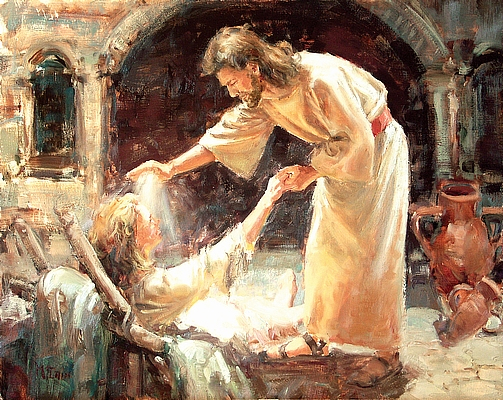 We can distinguish four stages in this encounter, and all of them contribute to the miraculous healing:
We can distinguish four stages in this encounter, and all of them contribute to the miraculous healing:
– he stops, in verse 49;
– he says, “Call him here” in the same verse;
– “What do you want me to do for you?” in verse 51;
– “Go; your faith has saved you,“ in verse 52.
At each stage we can see the respectful love of Jesus, and we know from our own experience that this kind of love can work miracles.
The man’s journey is also significant. Sitting at the side of the road, he is the model of all those who are marginalized, forced to beg for mercy while the great ones of the world pass by. But the faith which saves him is shown by his unconquerable spirit, his refusal to accept that he is destined to remain there for the rest of his life.
There are two groups of bystanders; the first – in verse 48 – scold the man for crying out. They are those who have grown to accept that his predestined place is to remain at the side of the road. Perhaps some of them were also beggars and they are genuinely angry that one of their number would want anything else for himself.
The second group of bystanders, mentioned in verse 49, are the opposite; they reassure the blind man, as if understanding how difficult it is for those who have been at the side of the road for a long time to throw off their cloaks and speak for themselves.
The climax of the story – “he followed him along the road” – is very touching, and you might like to enter into the metaphor of walking as a symbol of what happens when the marginalized take their place in the movement of history.
Scriptural Reflection
Lord, send us leaders like Jesus who, when they are surrounded by disciples and large crowds and some blind beggar sitting at the side of the road begins to shout for help, will not continue walking but will stop, and not merely throw a handout in his general direction but call him to come forward and stand in the centre of everybody; and they will not take for granted that they know what this man wants,
but will take the trouble to ask him
“What do you want me to do for you?”
And when the man has begun to see again they will not take any glory for themselves but will say to all that it was his own faith that saved him so that he may take his place as a free member of the community and follow them along the road.
Lord, there are many people sitting at the side of the road,
shouting to us to have pity on them,
but they often shout in strange ways:
* by behaving badly in the classroom;
* by taking drugs and alcohol;
* by sulking, remaining silent or locked up in their rooms;
* sometimes by insisting that they are happy to be at the side of the road while others pass by.
Lord, like Jesus, we need to stop all that we are doing so that we can hear them express their deep longing to have their sight restored to them.
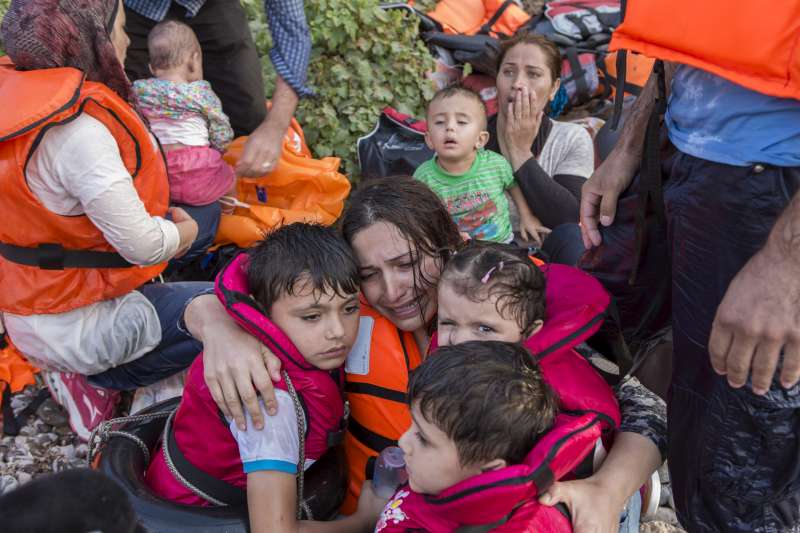 Lord, the people of the third world have been a long time at the side of the road, begging, while the wealthy nations in a large crowd make their way to ever greater prosperity.
Lord, the people of the third world have been a long time at the side of the road, begging, while the wealthy nations in a large crowd make their way to ever greater prosperity.
When these people begin to shout, asking others to have pity on them, many scold them as if they are wrong to shout,
as if it is their perpetual destiny to remain at the side of the road and beg.
But you, Lord, have put in their hearts an unconquerable faith
that they too can take their places on the road to prosperity, and this gift of faith will eventually save them.
Lord, when we have been a long time at the side of the road it is not easy to stand in front of everyone
and express what we really want for ourselves.
We thank you for those who say to us “Courage, get up, the Lord is really calling you.”
An Indian man sat silently wrapped in his blanket. The leader asked him what he thought of a particular point. No response; the man did not even look up.
He asked again; again, there was no response. Again – and then the man burst into tears.
Eventually, comforted, he said, This is the first time in my life anyone has asked me what I think.’
Then he proceeded to say what he thought for four hours!” ….Report from a church meeting in Latin America
Lord, we thank you that Jesus is still leaving Jericho with his disciples and walking along our roads.
Lord, we remember the day when, through your grace, our sight was restored. For many years, while other passed us by, we sat at the side of the road,
* lost in drink or drugs;
* refusing to forgive someone who had hurt us;
* making money and success the goals of our lives.
There came a time when we knew that we were blind, but we felt that we could do nothing about it.
 Then came a day when we knew you had sent a Son of David into our lives
Then came a day when we knew you had sent a Son of David into our lives
– a bible reading, a preacher, one of our children, a friend
– a phone call and we shouted to them to have pity on us.
There were loud voices within us scolding us and telling us to keep quiet:
it was too late, people would never understand, we were too far gone.
But we shouted all the louder
until eventually the moment came, and we knew it,
so that we threw off all our fears, jumped up and went to Jesus.
It all happened so simply: we just asked to be able to see again
and immediately we saw clearly what we had to do, and we followed you along the road.
We thank you for the deep conviction that the time of grace had come
for it was that conviction that saved us.
*************************************
Thomas O’Loughlin
Liturgical Resources for the Year of Matthew
www.columba.ie
Introduction to the Celebration
Rather than give an introduction, say something like this:
We are gathered here as people called to share in the Lord’s supper. As such, it is appropriate that we should be at least on speaking terms with each other, so let us introduce ourselves to each other by way of preparing for this celebration.
Homily notes
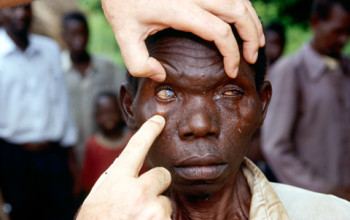
Blindness is terrifying
1. Blindness is terrifying. Darkness brings before us all our terrors. Not being able to see where we are going is the stuff of most human fears. The poverty and blindness of Bartimaeus speak to any human being of feeling — and, indeed, if there is someone to whom it does not speak, then that person probably would have no time for religion or things of the spirit as she/he would be insensitive to promptings in our imagination that lead us to faith.
2. But thinking of poor, blind, ignored Bartimaeus can distract us. We can listen to this gospel but only hear it in the way we hear a ‘news item‘: another detail, a bit of information about someone far away which we might simply believe, or refuse to believe, or simply note that we know it.
‘Oh yes, Bartimaeus, is that not the guy Jesus healed near Jericho or ‘Yes, wasn’t he a lucky guy: right place, right time!’ or ‘That story of Bartimaeus: shows how gullible people were in those days and the power of religious preachers to get their followers to accept accidents or falsehoods as miracles!’
3. Much as these are interesting approaches, all three miss the point, for Mark’s story of the incident of sight being restored is intended to alert every one who hears the gospel to the nature of the work of Jesus.
4. Recall the proverb: ‘There is none so blind as him who will not see.‘ Likewise we say that ‘Greed is at the root of all evil,’ but we could also say that blindness is there as well. We have all met people who are blind to the crassness of their actions or statements. We have all met people who are blind to the consequences of their actions or blind to their bigotry or blind to their prejudices. Dare we admit it: our own eyesight might just be a little dim also!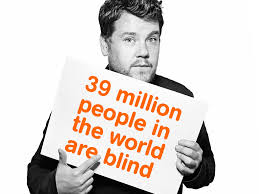
5. We live in a world of blindness. There is the blindness of world leaders who press forward policies that are so short-term that we have whole regions that simmer with unrest. We have blindness that prevents us seeing how policies create injustice and stop development. We have the blindness that sees global warming yet refuses to take action in time.
Closer to our localities we have blind spots about what is really of value in society: we may prefer a motorway to our heritage or we may prefer our holidays to a just wage for workers. Greed finds blindness a steadfast ally.
Then in our lives we can find blindness to those around us, blindness to the community, blindness to the needs of those who need us. Blindness can be a great help in avoiding awkward questions of conscience.
6. Asked would we like to leave our blindness behind, to become aware of our prejudices, to have our blind spots treated, we all respond with an emphatic ‘yes’ — few of us willingly seek darkness, carelessness, destruction. But it is not as simple as opening our eyes: we need also the gift of new sight. This gift is the ‘enlightenment of faith‘, it is the ‘grace of God‘, – the gift of the Spirit.
 7. If we would see our lives, see those around us, and see our world, we must cry out: ‘Master, let me see.‘ Then in the face of our need of forgiveness, we have to cry out: ‘Master, let me see again.’ Then knowing that we must grow in our discipleship, we cry out: ‘Master, let me see more.’ . We want the Lord’s gift of sight and enlightenment – this is our prayer every Sunday. We want to follow the Master along the road – we are a pilgrim people. But it is worth remembering that when Mark said that Bartimaeus set out along the road following Jesus, that road led towards the cross.
7. If we would see our lives, see those around us, and see our world, we must cry out: ‘Master, let me see.‘ Then in the face of our need of forgiveness, we have to cry out: ‘Master, let me see again.’ Then knowing that we must grow in our discipleship, we cry out: ‘Master, let me see more.’ . We want the Lord’s gift of sight and enlightenment – this is our prayer every Sunday. We want to follow the Master along the road – we are a pilgrim people. But it is worth remembering that when Mark said that Bartimaeus set out along the road following Jesus, that road led towards the cross.
**********************************
Sean Goan
Let the reader understand
www.columba.ie
Gospel
 The story of the healing of Bartimaeus, the blind beggar, brings to a close the section of Mark that began in 8:27 (the twenty-fourth Sunday of the year). As we have seen the focus has been on the meaning and demands of discipleship. Just prior to this incident Jesus has spoken to James and John saying to them, ‘What do you want me to do for you?’ Now he uses the same words, not to one of his closest companions but to a blind beggar sitting by the road who is crying out to him in desperation. James and John were seeking glory, Bartimaeus just wants to see and to gain that he throws away the only thing he owns, his cloak, lest it impede him in his journey to Jesus. His prayer is granted, he receives perfect sight and his response is to follow Jesus along the way. Jesus is leaving Jericho and heading for Jerusalem and so Bartimaeus is presented to us not simply as a recipient of the healing ministry of Jesus but as the model disciple who begs for sight so that he can follow Jesus to the cross and beyond. In the gospel, sight is often used as a metaphor for faith, being able to see God at work and to follow in the steps of Jesus.
The story of the healing of Bartimaeus, the blind beggar, brings to a close the section of Mark that began in 8:27 (the twenty-fourth Sunday of the year). As we have seen the focus has been on the meaning and demands of discipleship. Just prior to this incident Jesus has spoken to James and John saying to them, ‘What do you want me to do for you?’ Now he uses the same words, not to one of his closest companions but to a blind beggar sitting by the road who is crying out to him in desperation. James and John were seeking glory, Bartimaeus just wants to see and to gain that he throws away the only thing he owns, his cloak, lest it impede him in his journey to Jesus. His prayer is granted, he receives perfect sight and his response is to follow Jesus along the way. Jesus is leaving Jericho and heading for Jerusalem and so Bartimaeus is presented to us not simply as a recipient of the healing ministry of Jesus but as the model disciple who begs for sight so that he can follow Jesus to the cross and beyond. In the gospel, sight is often used as a metaphor for faith, being able to see God at work and to follow in the steps of Jesus.
Reflection
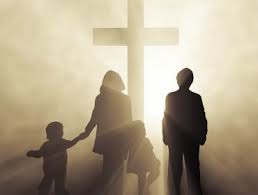
These readings are talking about salvation. It is one of those words much used in religious conversation but whose exact meaning is unsure for many. Probably most of us think of salvation as having to do with getting to heaven. However, the prophet Jeremiah only thought of God as saving his people in the here and now, offering them comfort, shade and fresh water. For him these are symbols of salvation. The author of Hebrews by contrast was very aware of heaven but for him salvation came about through the solidarity shown by Jesus who became the way we are so that we might become like him. What comes across strongly in the readings is that God never abandons us and that when we speak of salvation we are speaking of the ways in which God brings us to himself, a process which begins now. Lord, that we may see!
***************************
Donal Neary SJ
Gospel Reflections for Sundays of Year B
www.messenger.ie/bookshop.
All That He Needed
When we feel compassionate, we are reaching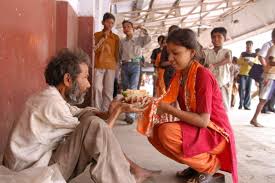 out to others. Someone’s tears get us crying, or joy gets us laughing. Compassion reaches into the needs of another, and simply wants to be there and to help.
out to others. Someone’s tears get us crying, or joy gets us laughing. Compassion reaches into the needs of another, and simply wants to be there and to help.
Our gospel is a response to an illness – of a blind man who shouted at Jesus to hear him. No whispered or shy prayer here! His faith made him shout to Jesus, and to believe that he could be better. He threw away all he had – a cloak – and knew he had found all he needed – the faith that made him strong. This faith gave him energy as he jumped at the sound of Jesus’ name.
His sight returned later; the first gift was faith. Our faith helps us see the world as God sees it. We see creation as the beauty of God and care for it, and men and women as images of God and we care for them. We see beyond labels and categories to everyone as a child of God, and our brother and sister. This is the ‘eye of faith’.
The way of Jesus is the way of light, and of healing, so that nothing inside ourselves can block us from receiving the light of God, the light of his love.
Imagine the dawn gradually bringing light to the darkness.
Does this remind you of what light of God you might pray for?
Lighten our burdens lord, and enlighten our darkness
and may we walk in your ways.
********************